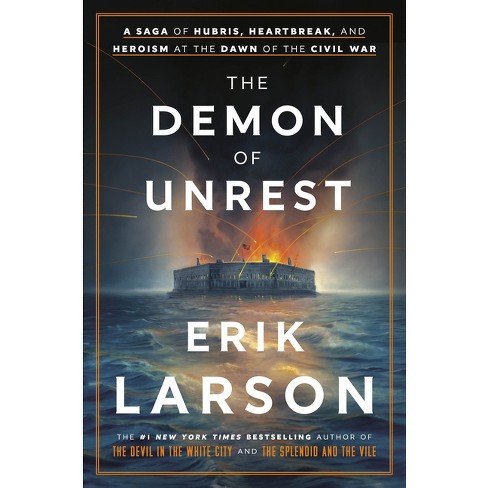5 HOT BOOKS: Writing "Les Miserables," How We Let Down "Crazy People," and More
/These are five books people are talking about this week -- or should be:
1. No One Cares About Crazy People: The Chaos and Heartbreak of Mental Health in America by Ron Powers (Hachette Books)
“I hope you do not ‘enjoy’ this book. I hope you are wounded by it, wounded as I have been writing it,’’ declares Powers in the preface to his bracing new book about mental illness. “Wounded to act to intervene.” Powers, who had two schizophrenic sons — one took his own life — draws on his personal experience to explain the mental health industry’s evolution and its many failings. Powers has a distinguished literary resume: co-author of Flags of our Fathers, author of a Mark Twain book that was a National Book Critics Circle award, and a Pulitzer Prize winner for his television writing in the Chicago Sun-Times. In this latest work, he artfully fuses his family’s personal experience with social history to create a powerful and terribly sad story.
2. The Novel of the Century: The Extraordinary Adventure of Les Miserables by David Bellos (Farrar, Straus and Giroux)
The origin story of Victor Hugo’s masterpiece Les Miserables is an epic tale, and Bellos is the perfect writer to tell it. A renowned translator of modern French literature, and author of Is That a Fish in Your Ear?, a brilliantly cheeky book on translation, Bellos writes about Les Miserables in the larger context of 19th-century French life. He illuminates the shifts in Jean Valjean’s perspective on the poor, how Hugo’s writing process evolved, and reports on the 1862 release party, one of the biggest book bashes in history. (The menu ranged from songbirds wrapped in bacon to locally sourced crayfish.) This book is a joy to read, and Bellos makes a convincing case for his claim that “among all the gifts France has given to Hollywood, Broadway and the common reader wherever she may be, Les Miserables stands out as the greatest by far.”
3. The Devil and Webster by Jean Hanff Korelitz (Grand Central Publishing)
What happens when a student protester at an elite New England college grows up and becomes its first female president? Jean Hanff Korelitz answers that question and more in this compulsively readable, uncanny, and irreverent novel that focuses on an American college campus to expose our current national psyche. Korelitz — author of Admission, a college-admissions novel that was made into the 2013 film starring Tina Fey and Paul Rudd, and You Should Have Known, about a New York shrink who learns her husband of two decades is a sociopath — is an expert on the art of deception, a talent she puts to excellent use in her latest book. In The Devil and Webster, she churns the college melting pot to explosion by adding, among other things, a polarizing Palestinian campus leader and a controversial tenure case complicated by a secret.
4. A Question of Order: India, Turkey and the Return of Strongmen by Basharat Peer (Columbia Global Reports)
In this fascinating book, Peer argues that the world is “increasingly dominated by governments that are both democratic and authoritarian on the same afternoon.” He spent a year a half in India and Turkey to understand the rise of strongmen leaders and expose the terrible human toll such governance exacts. Peer, who was born in Kashmir, notes the parallels between the two countries in his title. “Strongmen are revisionists who share a love for rewriting school textbooks, retelling tales of ancient glories, and reviving old wounds,” he writes in this urgent work, which some American readers may find hits close to home. “They are united by their promises to make their countries great again.”
5. Our Short History by Lauren Grodstein (Algonquin Books)
This deeply affecting novel takes the form of a letter, written by a high-powered single mother, a successful political consultant who is in the late stages of cancer, to her six-year-old son. Channeling the narrator, Grodstein writes: “I still haven’t decided how often I want you to think of me in the future, Jake, or what kind of memory I want to be.” She sits down with her shiny new laptop and writes a book “with chapters, a title, and maybe even an appendix of photographs.” While the narrator is writing her letter, and managing a political campaign, Jake’s biological father returns to the picture. This is a tearjerker of a story, but not a mushy one — and it provides a charming, occasionally funny portrait of a mother trying to come to terms with both her death and her legacy.










